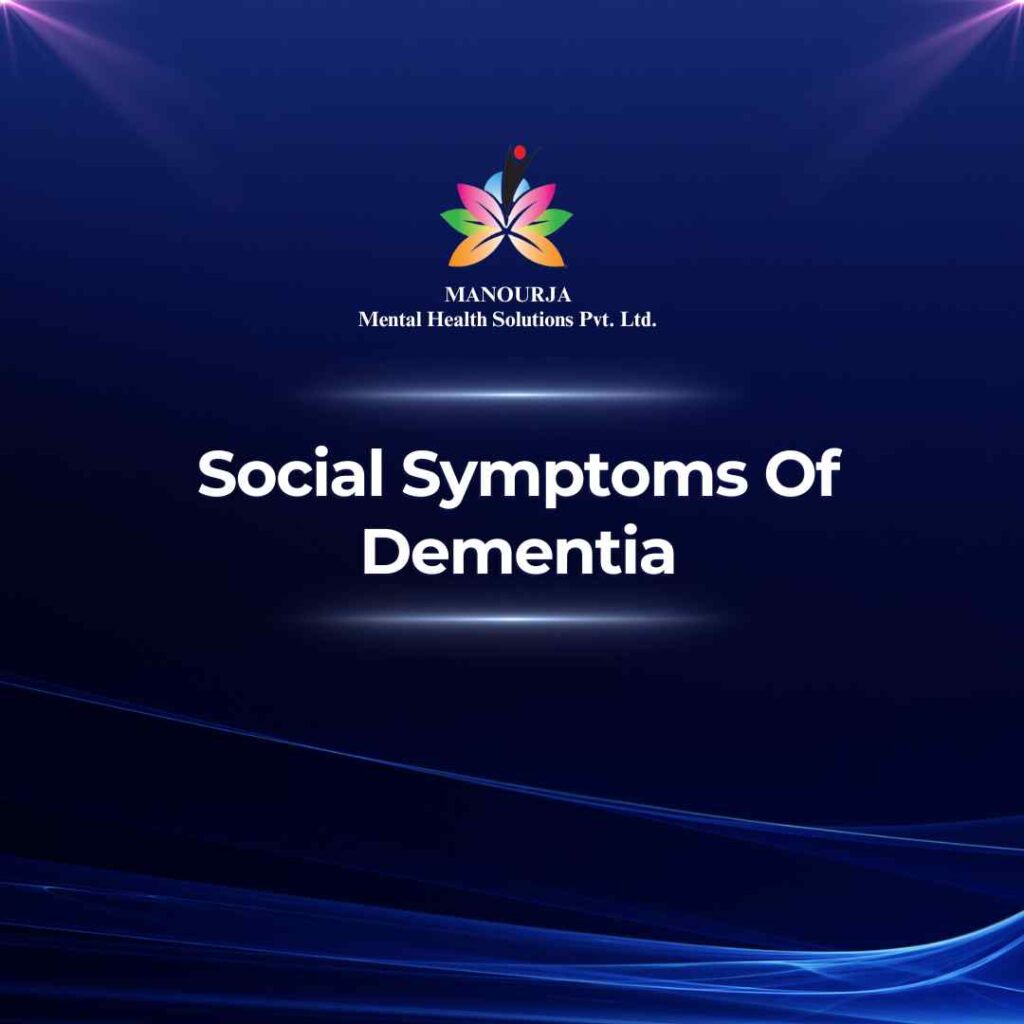Social Symptoms of Dementia

Dementia not only affects an individual’s cognitive and psychological well-being but also has significant social implications. The social symptoms of dementia can strain relationships and impact a person’s ability to engage in social activities.
Here are some common social symptoms associated with dementia:
- Social Withdrawal: Individuals with dementia may gradually withdraw from social interactions as they find it challenging to communicate and engage with others. This withdrawal can lead to increased isolation.
- Difficulty in Maintaining Relationships: Dementia can impact an individual’s ability to sustain meaningful relationships with family and friends. Changes in personality and behavior may strain previously close connections.
- Communication Challenges: Impaired language skills and difficulty expressing thoughts can hinder effective communication. This can lead to misunderstandings, frustration, and a breakdown in social interactions.
- Embarrassment and Social Anxiety: Individuals with dementia may feel embarrassed about their cognitive decline and may develop social anxiety as a result. This can further contribute to social withdrawal.
- Dependence on Caregivers: As dementia progresses, individuals may become increasingly reliant on caregivers for assistance with daily tasks. This shift in dependency can alter social dynamics within families and among friends.
- Disruption of Social Roles: Dementia can disrupt an individual’s ability to fulfill social roles and responsibilities, such as being a spouse, parent, or friend. This can be challenging for both the person with dementia and those close to them.
- Changes in Social Etiquette: Dementia can lead to changes in social behavior, including inappropriate comments or actions. This may be unintentional, but it can strain social relationships and lead to discomfort among peers.
- Social Isolation: Due to communication difficulties and changes in behavior, individuals with dementia may experience social isolation. The state of seclusion can give rise to sentiments of solitude, contributing to a sense of loneliness and exerting an adverse influence on one’s mental well-being.
- Wandering and Safety Concerns: Some individuals with dementia may wander, which can be a safety concern. This behavior can affect their ability to participate in community activities and may require increased supervision.
- Stigma and Misunderstanding: The stigma associated with dementia may lead to misunderstanding and social exclusion. Educating the community about dementia is crucial to fostering understanding and support.
Addressing the social symptoms of dementia requires a holistic approach that involves not only the affected individuals but also their families, friends, and communities. Creating dementia-friendly environments and providing social support can enhance the quality of life for those living with dementia.
At MANOURJA, we believe in the transformative power of counseling. Our experienced therapists offer a safe and supportive space where you can explore your thoughts, emotions, and challenges. Through personalized counselling sessions, we’ll work together to develop coping strategies, build resilience, and achieve lasting positive change. Discover the path to a healthier, happier you with MANOURJA counselling services.
MANOURJA Rehabilitation Services
At MANOURJA, we’re dedicated to helping you in rebuild your life, after difficult times. Our rehabilitation services focus on understanding what you need to move forward, whether you’re recovering from addiction, trauma, or any psychological – social challenges. We create personalized plans, that are all about helping you, regain your strength and find hope again. With a caring team by your side, you’ll have the support to make real progress and take steps toward a brighter, healthier future.
